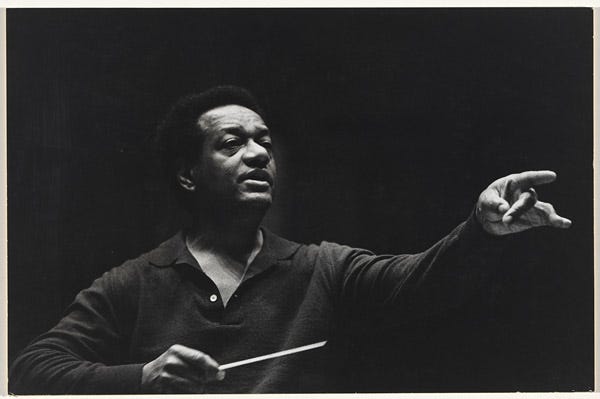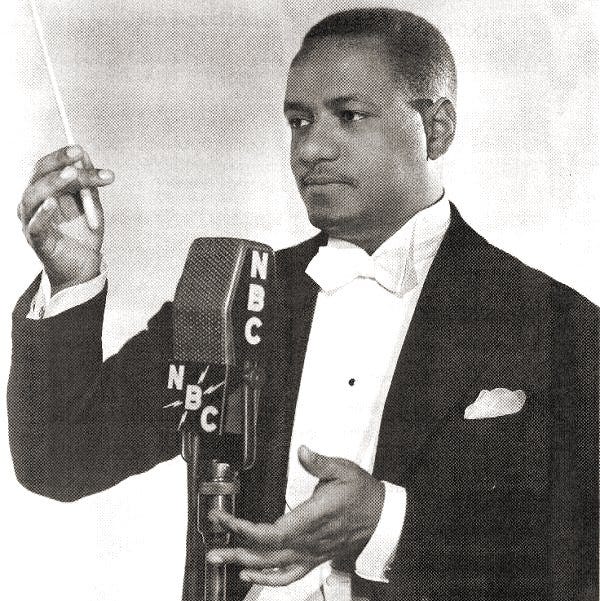
Charles Dean Dixon was born in Harlem in 1915 to immigrant parents from the West Indies. At an early age his parents exposed him to classical music, and his mother began teaching him violin as well as other instruments. By the age of nine, he was considered a prodigy and was performing on radio stations, and at the age of seventeen was admitted to the Juilliard School as a violin major. He decided to switch his studies and graduated with a music pedagogy degree in 1936. He then pursued a Master’s degree in music pedagogy, graduating from Columbia University in 1936.
While at Juilliard, however, Dixon discovered conducting and when he graduated in 1936 formed the Dean Dixon Symphony Orchestra, which was the first fully integrated orchestra in New York City. Four years later, he conducted the New York City Symphony. In 1941, he conducted the NBC Symphony Orchestra and became the first black conductor to ever lead the New York Philharmonic. During the forties, he also received two prestigious awards, Julius Rosenwald Fellowship and the Alice M. Ditson Award.

Despite all of these accolades, it became clear to Dixon that a career in conducting for a black man in the United States was not going to happen. In 1949, he moved to Europe and remained abroad for the next two decades. His move to Europe paid off, for he had an extraordinary career there and elsewhere, becoming the music director of the Gothenburg Symphony in Sweden (1953–1960), Frankfurt Radio Symphony (1961–1974), and also in Australia as music director of the Sydney Symphony (1964–1967).
His recordings are propulsive and full of life. He made a series of recordings for Westminster and I’ve particularly enjoyed his Schumann symphonies with the Vienna State Opera Orchestra (Vienna Philharmonic) from the early fifties.
Here’s an incredible performance from 1959 of the rarely performed Bruckner Overture in G Minor with WDR Köln.
A sensitive and stylish Mozart Piano Concerto №22 from 1956 with his then wife, Vivian Rivkin.
A passionate and determined 1953 recording of Liszt’s Les Preludes with the Royal Philharmonic Orchestra.
Dixon would return to the U.S. in the early 70’s for several guest conducting engagements but returned to his Swiss home in 1975 due to a prevailing heart condition. Dean Dixon passed away in Zug, Switzerland on November 4, 1976. He was 61.
